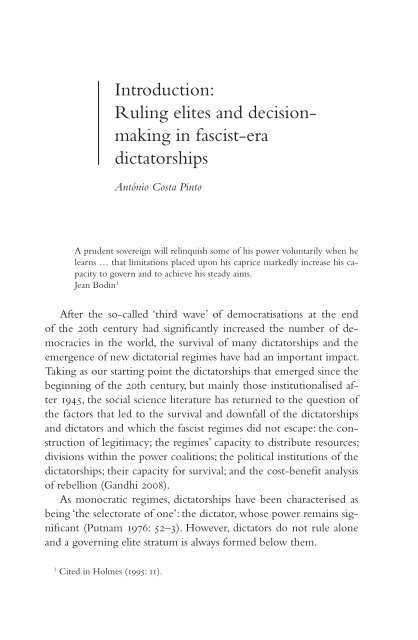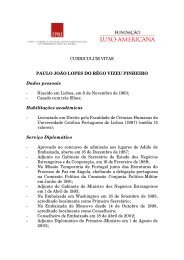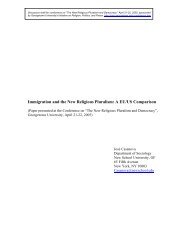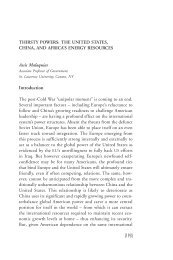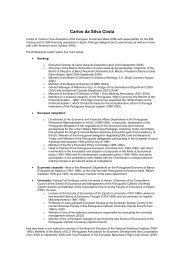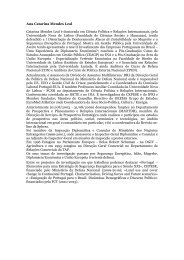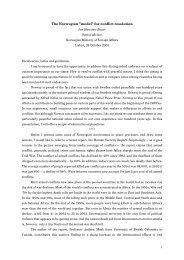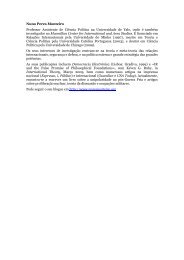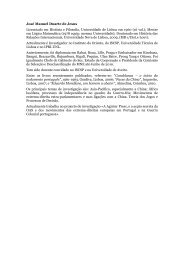ruling elites and decision-making in fascist-era dictatorships
ruling elites and decision-making in fascist-era dictatorships
ruling elites and decision-making in fascist-era dictatorships
Create successful ePaper yourself
Turn your PDF publications into a flip-book with our unique Google optimized e-Paper software.
Introduction:Rul<strong>in</strong>g <strong>elites</strong> <strong>and</strong> <strong>decision</strong><strong>mak<strong>in</strong>g</strong><strong>in</strong> <strong>fascist</strong>-<strong>era</strong><strong>dictatorships</strong>António Costa P<strong>in</strong>toA prudent sovereign will rel<strong>in</strong>quish some of his power voluntarily when helearns … that limitations placed upon his caprice markedly <strong>in</strong>crease his capacityto govern <strong>and</strong> to achieve his steady aims.Jean Bod<strong>in</strong> After the so-called ‘third wave’ of democratisations at the endof the 20th century had significantly <strong>in</strong>creased the number of democracies<strong>in</strong> the world, the survival of many <strong>dictatorships</strong> <strong>and</strong> theemergence of new dictatorial regimes have had an important impact.Tak<strong>in</strong>g as our start<strong>in</strong>g po<strong>in</strong>t the <strong>dictatorships</strong> that emerged s<strong>in</strong>ce thebeg<strong>in</strong>n<strong>in</strong>g of the 20th century, but ma<strong>in</strong>ly those <strong>in</strong>stitutionalised after1945, the social science lit<strong>era</strong>ture has returned to the question ofthe factors that led to the survival <strong>and</strong> downfall of the <strong>dictatorships</strong><strong>and</strong> dictators <strong>and</strong> which the <strong>fascist</strong> regimes did not escape: the constructionof legitimacy; the regimes’ capacity to distribute resources;divisions with<strong>in</strong> the power coalitions; the political <strong>in</strong>stitutions of the<strong>dictatorships</strong>; their capacity for survival; <strong>and</strong> the cost-benefit analysisof rebellion (G<strong>and</strong>hi 2008).As monocratic regimes, <strong>dictatorships</strong> have been characterised asbe<strong>in</strong>g ‘the selectorate of one’: the dictator, whose power rema<strong>in</strong>s significant(Putnam 1976: 52–3). However, dictators do not rule alone<strong>and</strong> a govern<strong>in</strong>g elite stratum is always formed below them.Cited <strong>in</strong> Holmes (1995: 11).


